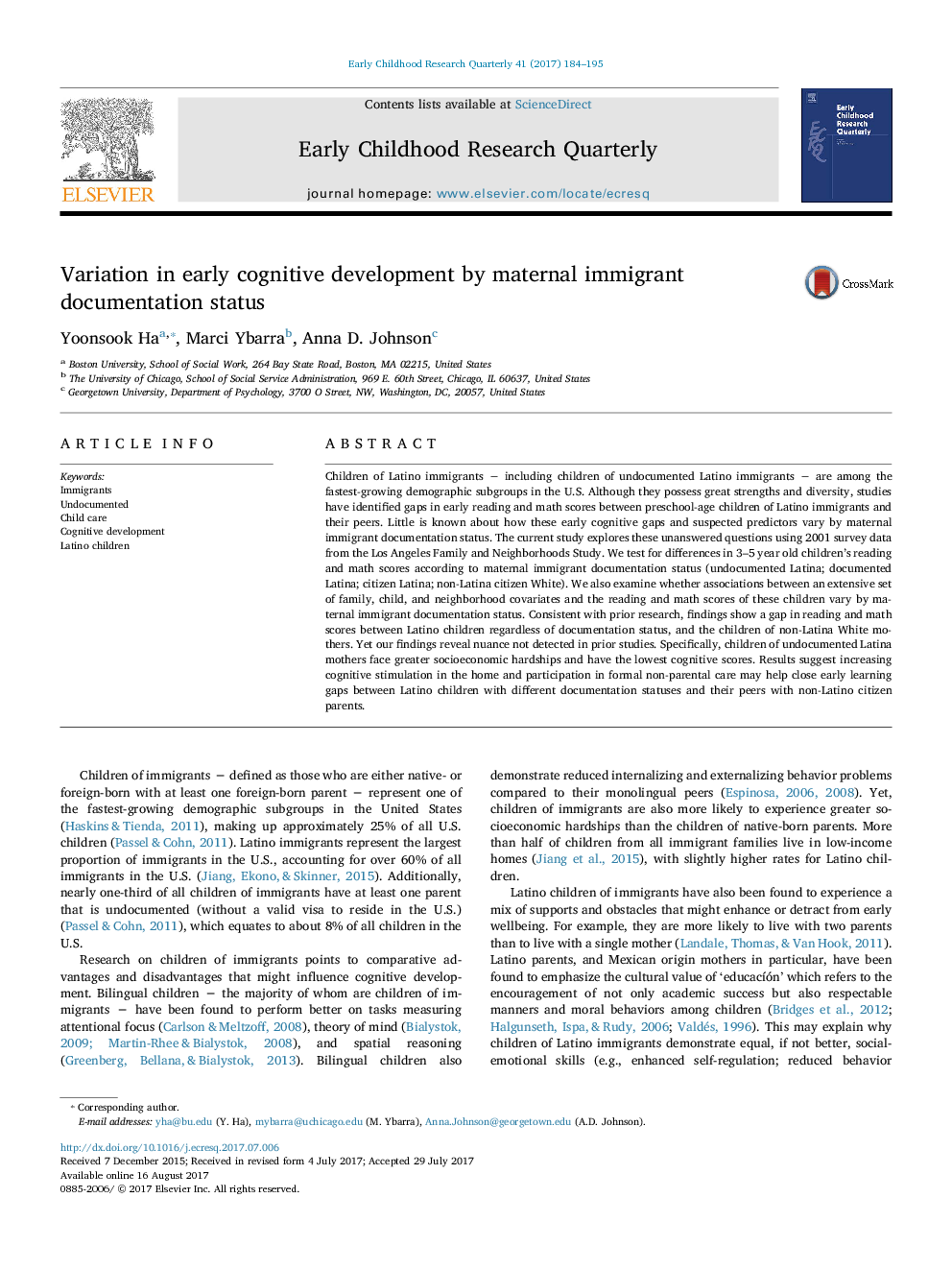ترجمه فارسی عنوان مقاله
تنوع در توسعه شناختی اولیه توسط وضعیت اسناد مهاجر مادری
عنوان انگلیسی
Variation in early cognitive development by maternal immigrant documentation status
| کد مقاله | سال انتشار | تعداد صفحات مقاله انگلیسی |
|---|---|---|
| 156902 | 2017 | 12 صفحه PDF |
منبع

Publisher : Elsevier - Science Direct (الزویر - ساینس دایرکت)
Journal : Early Childhood Research Quarterly, Volume 41, 4th Quarter 2017, Pages 184-195
ترجمه کلمات کلیدی
مهاجران، بدون ضمانت، مراقبت از کودکان، توسعه شناختی، کودکان لاتین،
کلمات کلیدی انگلیسی
Immigrants; Undocumented; Child care; Cognitive development; Latino children;

